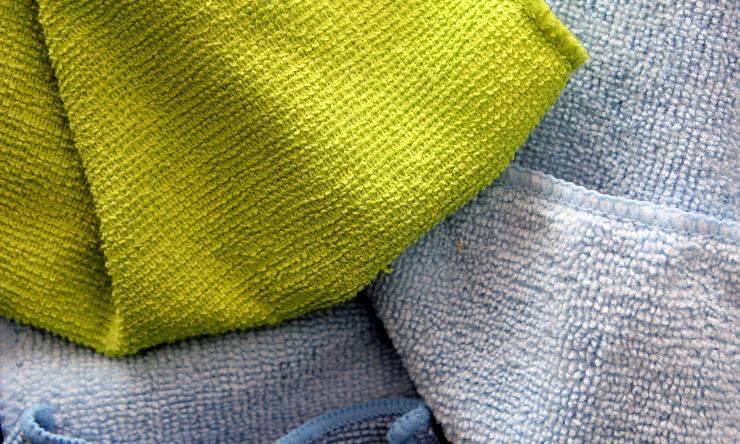Avoid indoor allergies this winter
With winter just around the corner and COVID-19 spiking, you may find yourself spending more time indoors. While allergies usually affect you outdoors, a Baylor College of Medicine allergy expert said there could be hidden allergens throughout the house that can cause allergy symptoms.
Dr. David Corry, professor of medicine in the section of immunology, allergy and rheumatology at Baylor, said the primary culprit of indoor allergies is dust, but other factors like mold, pets, furniture and houseplants could also be the cause.
“Indoor allergens are typically comprised of agents like proteins that come from objects or animals that reside in the house,” Corry said.
What is dust?
Corry explains that dust consists largely of fibers that are shed from material like clothing, carpet and furniture that can build up and accumulate throughout the house.
“Dust provides shelter for things that cause allergies, like mites and fungi, which are major components of dust themselves,” Corry said.
If you find yourself sneezing even though you are staying inside, Corry offers tips on how you can avoid allergies indoors this season.
Keep the house clean and dry
- Keep your home dry by checking humidity levels – keeping the humidity at less than 50% could reduce the growth of mold and dust mites. You can check humidity levels in your home by using a hygrometer, an electronic instrument that measures humidity in the air. Try using a dehumidifier if the humidity is greater than 50%.
- Keep the house dust free by regularly vacuuming and cleaning surfaces – remember to clean the areas where your pets live. If dust is difficult to control, consider using a freestanding HEPA filter in rooms where you spend the most time.
- Watch where food goes – try to eat in designated areas where stray pieces of food cannot linger in the house and promote mold and insect growth.
- Make sure your home is sealed properly so that bugs, dirt and humidity cannot enter.
- Consider removing fixed carpets (not throw rugs) from the home since they tend to trap allergens, molds and dust mites. If you have carpeting, keep it regularly vacuumed so dust and dander cannot build up.
- Change your pillows and mattresses regularly or try covering them in allergen-proof covers that block allergens from accumulating in and exiting from beds and pillows.
- Avoid cloth furniture if possible – opt for leather or naugahyde.
- Remember to change HVAC filters regularly.
Watch out for holiday decorations
Another place you might find hidden allergens that could affect you during the winter season is in your holiday decorations. Corry said your seasonal decor often collects dust while being stored away.
“Decorations, kept in semi-closed boxes for the rest of the year, often collect dust that is then liberated when you remove them for display, causing a massive allergen release,” Corry said.
To prevent a buildup of dust, he recommends keeping your decorations in tightly sealed bags that are stored in a cool and dry place. When it is time to take out your holiday decorations, he recommends removing them outdoors to limit your exposure to dust that can accumulate inside the bag.
“Also keep in mind that live trees used as holiday decorations and certain holiday plants can be extremely allergenic,” Corry said. “If you struggle with allergies, consider plastic alternatives.”
Prevention and treatment
For treatment of allergies, Corry advises taking a non-sedating antihistamine such as loratadine, cetirizine and/or fexofenadine, which can be purchased over the counter.
He also recommends using a netipot or an electronic nasal irrigation device to wash out your nose on a daily basis.
“However you wash your nose, you should only use clean, purified water that contains balanced salts to prevent irritation,” he said. “Never use tap water unless it has been recently boiled.”
If neither of these methods work, he advises adding an over-the-counter nasal steroid. He said these should only be used for maximum periods of 2 to 3 weeks to avoid steroid-related side effects.
If your symptoms do not go away, an allergy specialist can offer tests to help determine what is causing your allergies, and offer treatments such as immunotherapy, allergy shots or other advanced treatments.










